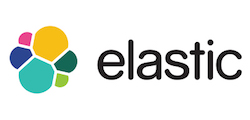
Earlier this month, Google announced that it is getting out of the search appliance business. According to this article by Fortune, Google told its partners they could renew existing Google Search Appliance (GSA) customers through 2017 but no new hardware would be sold.
I have multiple clients running GSA for Enterprise Search and their experiences have been mixed. Clearly, the plug-and-play nature of a turnkey appliance was attractive. But, of course, the other side of that coin is the potential set of limitations that an appliance places on you, whether that’s in terms of cost/license, capacity, or features.
GSA customers have time to figure out their migration path. Google says they are working on a cloud-based alternative. But maybe it’s time to take a step back and consider your options.
Something big has happened since the last time you looked at Enterprise Search: It’s called Elasticsearch. The commercially-supported open source software builds on the rock solid foundation of the well-known Apache Lucene by baking in clustering and a comprehensive API out-of-the-box.
Adoption has been swift. At last year’s Elasticon conference, the company reported 20 million downloads. At this year’s conference the company announced they had hit 50 million downloads across all of their products.
Deployment options
If you want to self-support, you can set up a cluster on-prem and scale it as big as you need it for the cost of your time and some hardware. If you need commercial support you can get it from Elastic.
If a cloud-based solution is attractive to you there are several options:
- Elastic has its own cloud offering called Elastic Cloud (formerly called “Found”).
- QBox offers Elasticsearch hosting.
- Amazon offers its own hosted Elasticsearch offering called Amazon ES.
- And you can always just grab some virtual machines on your cloud provider of choice and install and run your own cluster.
The Elastic Stack provides the core search platform and a host of other tools, but it does not provide a web crawler. You’ll probably want to use Scrapy, StormCrawler, or Nutch for this, all of which are freely available as open source software.
Beyond crawlers there are a ton of different ways to get content indexed into Elasticsearch. Beats and Logstash are two Elastic products that can be used to pump data into the cluster. If you have to write your own integration, the API is fairly straightforward and is available for a number of languages as well as anything that can speak REST.
You’ll be shocked at how quickly you can stand up an Elasticsearch cluster. Where you’ll likely spend more time is on production-izing your setup and tuning for relevancy (take a look at the Relevant Search book from Manning).
Your GSA was only ever going to be good at one thing–providing keyword search for your internal documents. Elastic gives you that and so much more. You might start out using it to replace your GSA-based Enterprise Search but you’ll soon figure out that it can be used for all kinds of interesting things.



